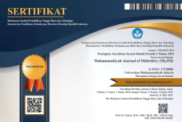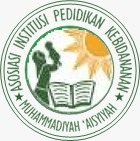Affecting and Inhibiting Factors for Exclusive Breastfeeding: Systematic Literature Review
DOI:
https://doi.org/10.24853/myjm.1.1.1-11Keywords:
Exclusive breastfeeding, Family Support, Husband Support, WorkplaceAbstract
Background: Breastfeeding is one important step for the health and development of infants early in life. An international perspective, breastfeeding is important to increase the chances of a baby's survival. Newborns who are exclusively breastfed have a lower risk of dying from diarrhea and respiratory disease, benefits for cognitive and motor activities, improve the general health of the baby. The aim of the study was to identify affecting and inhibiting factors for exclusive breastfeeding. This study used a Systematic Literature Review (SLR). Searching article from 2013 to 2018, from PubMed, Science Direct, and Proquest databases. Total of 1,115 articles reviewed, 6 articles met the inclusion criteria. Results: Exclusive breastfeeding is very closely related to the support of cultural beliefs, practices, and values as well as social and professional encouragement. Husbands who provide support or motivation for exclusive breastfeeding will certainly give happiness to mothers during breastfeeding. Family support is a supporting factor which in principle is an activity both emotional and psychological given to mothers in providing exclusive breastfeeding. Knowledge is very important in shaping one's actions, one of which is the adequate knowledge of the mother about the importance of exclusive breastfeeding. Support of health workers and the workplace has a positive impact on mothers in providing exclusive breastfeeding. Conclusion: Affecting factors for exclusive breastfeeding was associated with husband, family, health worker, workplace support, cultural traditions, and knowledge. Inhibiting factors for exclusive breastfeeding are internal and external factors.References
Omer-Salim A, Suri S, Dadhich JP, Faridi MMA, Olsson P. Theory and social practice of agency in combining breastfeeding and employment: A qualitative study among health workers in New Delhi, India. Women Birth. Netherlands; 2014 Dec;27(4):298–306.
Wambach K, Domian EW, Page-Goertz S, Wurtz H, Hoffman K. Exclusive Breastfeeding Experiences among Mexican American Women. J Hum Lact [Internet]. 2015/08/19. 2016 Feb;32(1):103–11. Available from: https://pubmed.ncbi.nlm.nih.gov/26289059
Johnson M, Whelan B, Relton C, Thomas K, Strong M, Scott E, et al. Valuing breastfeeding: a qualitative study of women’s experiences of a financial incentive scheme for breastfeeding. BMC Pregnancy Childbirth [Internet]. 2018;18(1):20. Available from: https://doi.org/10.1186/s12884-017-1651-7
Thulier D, Mercer J. Variables associated with breastfeeding duration. J Obstet Gynecol neonatal Nurs JOGNN. United States; 2009;38(3):259–68.
Palmqvist H, Zäther J, Larsson M. Fathers’ and co-mothers’ voices about breastfeeding and equality – A Swedish perspective. Women and Birth [Internet]. Elsevier; 2015 Sep 1;28(3):e63–9. Available from: https://doi.org/10.1016/j.wombi.2015.03.005
Murtagh L, Moulton AD. Working mothers, breastfeeding, and the law. Am J Public Health. 2011 Feb;101(2):217–23.
Pati D, Lorusso LN. How to Write a Systematic Review of the Literature. Heal Environ Res Des J. 2018;11(1):15–30.
Cyrus J. Research Guides: How to Conduct a Literature Review (Health Sciences): Developing a Research Question [Internet]. 2020 [cited 2020 Mar 11]. Available from: https://guides.library.vcu.edu/health-sciences-lit-review/question
Rempel LA, Rempel JK, Moore KCJ. Relationships between types of father breastfeeding support and breastfeeding outcomes. Matern Child Nutr. 2017 Jul;13(3).
Evareny L, Hakimi M, Padmawati RS. Peran ayah dalam praktik menyusui. J Kebijak Kesehat Indones. 2010;26(4):187–95.
Septiani H, Budi A, Karbita. Faktor-Faktor yang Berhubungan dengan Pemberian ASI Eksklusif oleh Ibu Menyusui yang Bekerja sebagai Tenaga Kesehatan. Aisyah J Ilmu Kesehatan2. 2017;2(2):159–74.
Rocha, Maiara G, Costa E. Early Interruption of Exclusive Breastfeeding: Experience with Mothers of Children in Child-Care Consultations. Rev Bras Em Promocao Da Saude; Fortaleza. 2015;28(4):547–52.
Notoatmodjo S. Kesehatan Masyarakat, Ilmu dan Seni. Rineka Cipta; 2011.
Lawrence W. Green Judith M. Ottoson. A Framework for Planning and Evaluation: PRECEDE-PROCEED. Evolution and Application of the Model. In: 10Es Ans Journees De Sante Publique [Internet]. Montreal, Quebec; 2006. Available from: http://www.eldis.org/vfile/upload/1/document/0803/id2188.pdf
Mekuria G, Edris M. Exclusive breastfeeding and associated factors among mothers in Debre Markos, Northwest Ethiopia: a cross-sectional study. Int Breastfeed J. 2015;10(1):1.
Sriningsih I. Faktor Demografi, Pengetahuan Ibu Tentang Air Susu Ibu dan Pemberian Asi Eksklusif. KEMAS J Kesehat Masy. 2011;6(2):100–6.
Novayelinda R. Telaah literatur : Pemberian ASI dan Ibu Bekerja. J Ners Indones. 2012;2(2):177–84.
Rosyadi D. Hubungan antara Pengetahuan Ibu Bekerja, Jam Kerja Ibu dan Dukungan Tempat Kerja dengan Keberhasilan Pemberian ASI Eksklusif Di Wilayah Kerja Puskesmas Banyudono I. Universitas Muhammadiyah Surakarta; 2016.
Sholihah N. Hubungan Dukungan Tempat Kerja dengan Pemberian ASI Eksklusif pada Ibu Bekerja di Wilayah Kerja Puskesmas Sewon II Kabupaten Bantul. Politeknik Kesehatan Kementerian Kesehatan Yogyakarta; 2017.
Bernie K. The factors influencing young mothers’ infant feeding decisions: the views of healthcare professionals and voluntary workers on the role of the baby’s maternal grandmother. Breastfeed Med Off J Acad Breastfeed Med. United States; 2014 Apr;9(3):161–5.
Majee W, Jefferson UT, Goodman LR, Olsberg JE. Four Years Later: Rural Mothers’ and Employers’ Perspectives on Breastfeeding Barriers Following the Passage of the Affordable Care Act. J Health Care Poor Underserved. United States; 2016;27(3):1110–25.
Sutanto M. Iklan Susu Formula Melampaui Batas Etika. 2015; Available from: https://www.antaranews.com/berita/501452/aimi-iklan-susu-formula-lampaui-batas-etika
Pernatun C, Retna E, Retno E. Dukungan Tempat Kerja terhadap Perilaku Pemberian ASI Eksklusif. J Kebidanandan Keperawatan. 2014;10(1):27–36.
Kartika R. Hubungan Lamanya Jam Kerja Ibu Menyusui dengan Pemberian ASI pada Bayi Usia 0-6 Bulan di Desa Bangsri Kecamatan Bangsri Kabupaten Jepara. J Kesehat dan Budaya. 2015;8(2):26–32.
Downloads
Published
Issue
Section
License
(c) 2020 MyJM







